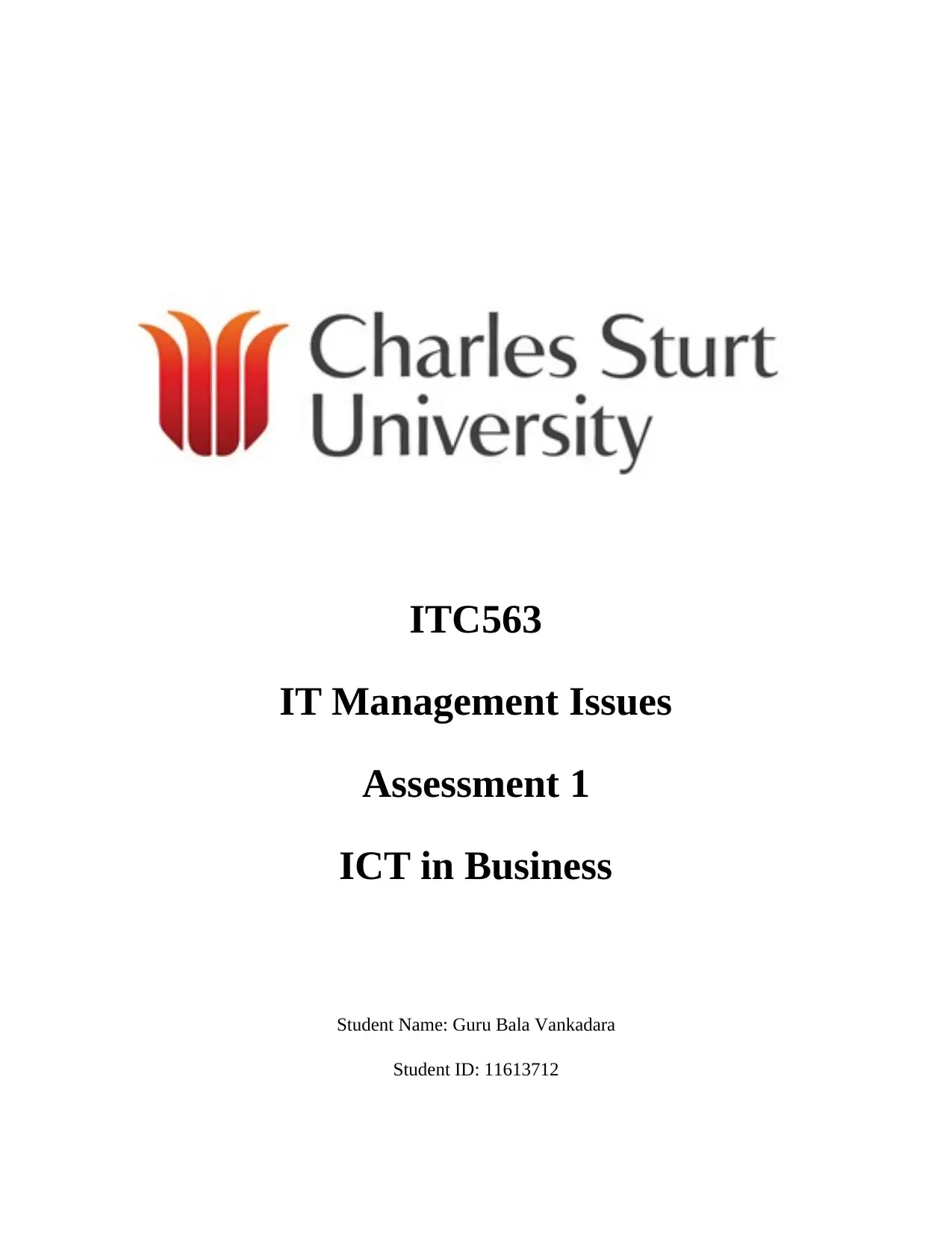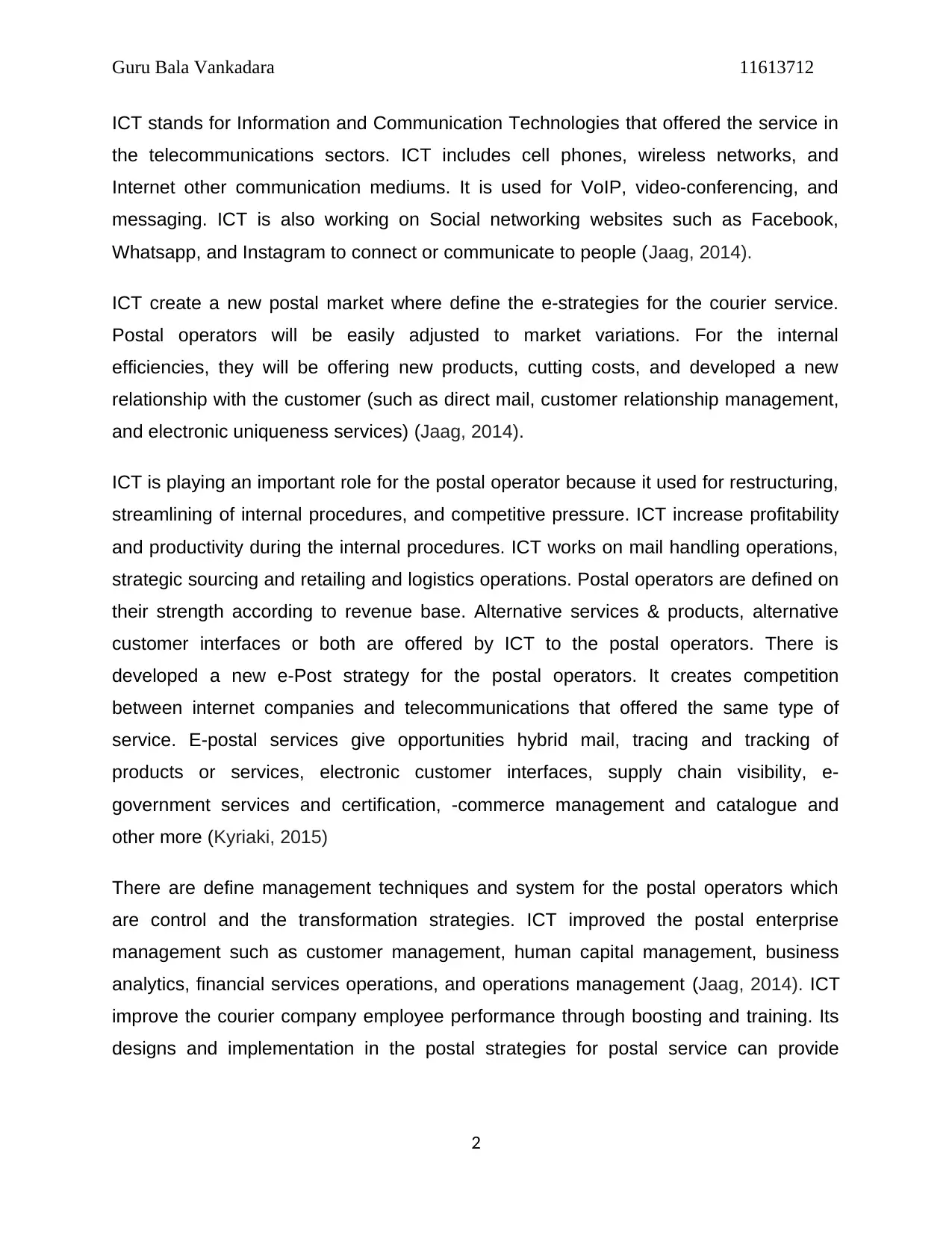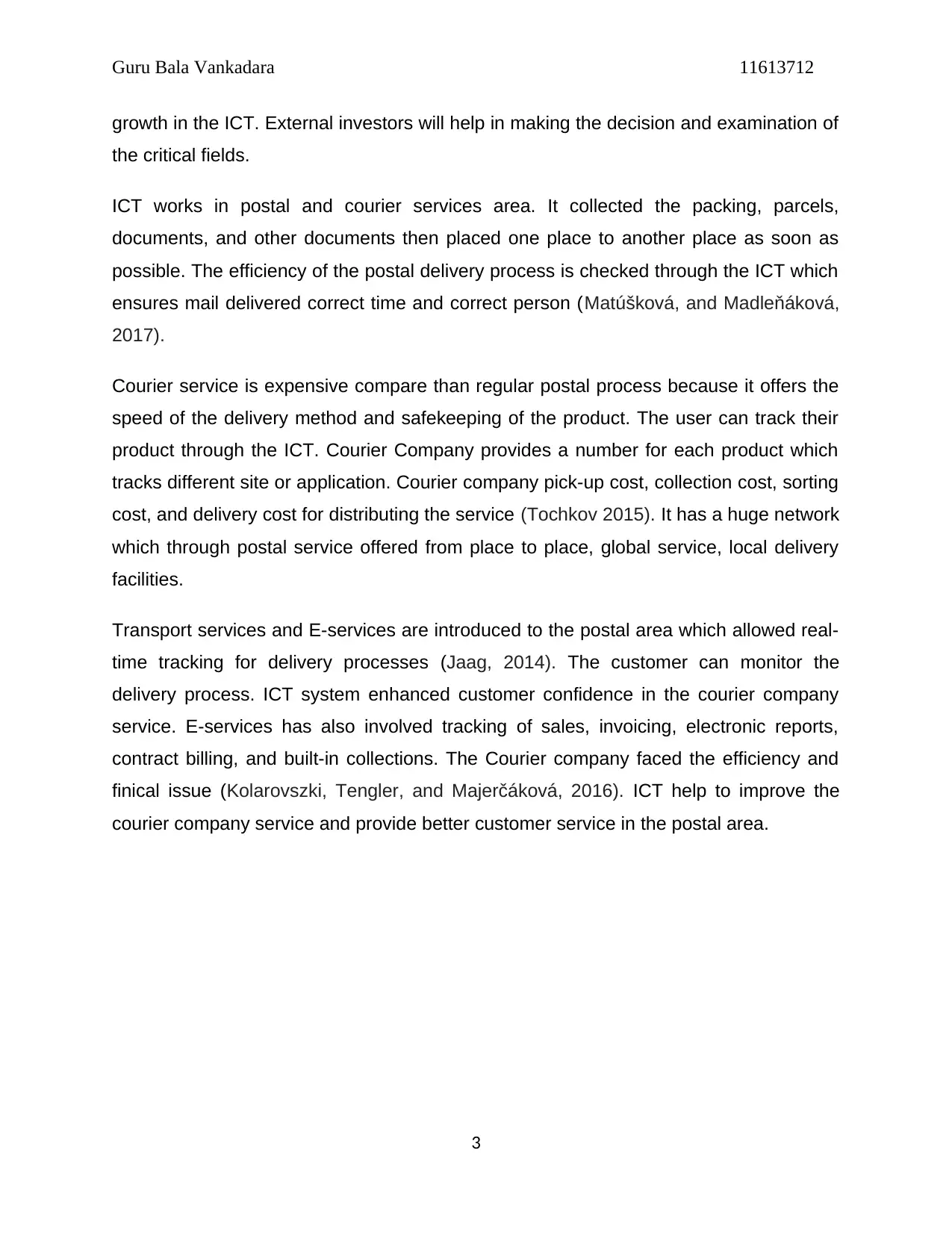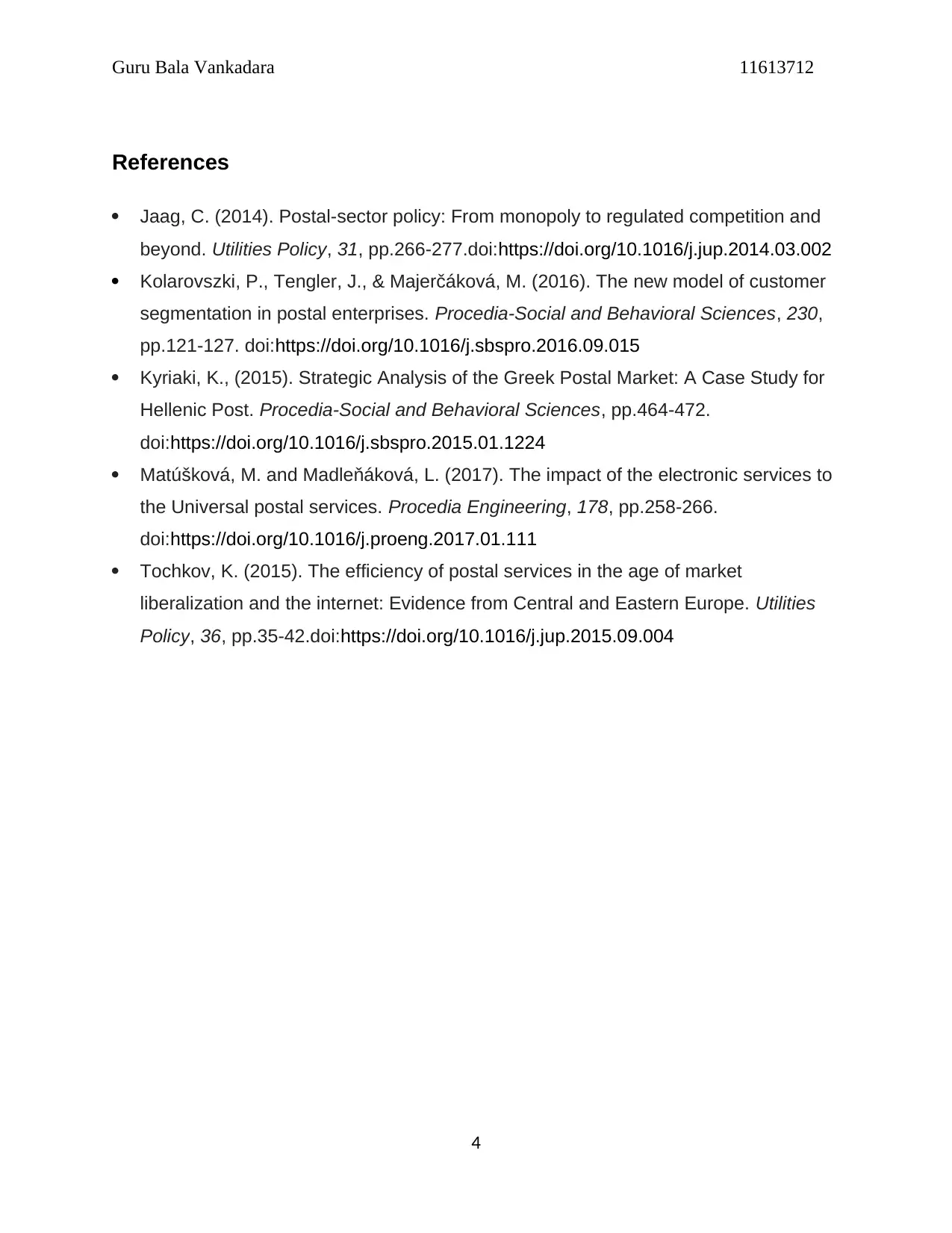ITC563 - IT Management Issues: ICT Impact on Business - Assessment 1
VerifiedAdded on 2024/05/20
|4
|856
|425
Report
AI Summary
This report examines the role of Information and Communication Technologies (ICT) in modern business, particularly focusing on its impact on the postal and courier service sectors. It discusses how ICT facilitates restructuring, streamlining internal procedures, and increasing competitive pressure, ultimately enhancing profitability and productivity. The report highlights the development of e-post strategies, which introduce competition from internet and telecommunications companies and offer hybrid mail, tracking services, and electronic customer interfaces. Furthermore, it explores how ICT improves postal enterprise management through better customer and human capital management, business analytics, and financial services operations. The study also acknowledges the challenges faced by courier companies, such as efficiency and financial issues, and suggests that ICT can provide solutions by improving customer service and overall operational performance. The document references several academic sources to support its analysis of ICT's role in transforming postal and courier services.
1 out of 4











![[object Object]](/_next/static/media/star-bottom.7253800d.svg)